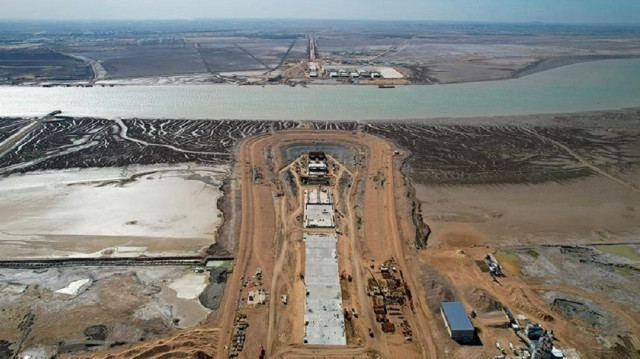
Experts expect project to open Iraq to region and world, help reduce regional tensions
Local officials and experts in the Iraqi city of Mosul believe the Development Road Project will address unemployment and regional tensions, offering significant economic opportunities for Iraq and the broader region.
The project, initially proposed in the 1980s but delayed by the Iran-Iraq War, will connect Iraq to Asia and Europe through Türkiye via upgraded rail and road infrastructure, with Mosul in the north emerging as a critical transit point.
Journalist Fawwaz Tayyeb highlighted the project's potential political, social and cultural impacts on Mosul while welcoming Türkiye's commitment to the initiative.
Jalil Mohammad, the president of a think-tank, described the project as a potential turning point for Iraq's economic and political landscape. He also emphasized that large economic projects typically help reduce regional tensions by creating shared economic interests and interdependencies.
Mohammad said the project will open Iraq to the region and the world. He believes the project will be crucial in resolving political challenges and establishing significant international partnerships.
Rafia Mohammad from the Mosul Provincial Council's Women's Rights Office highlighted the project's potential to create job opportunities, particularly for unemployed women. She anticipates benefits extending beyond Mosul to the Gulf region and other neighboring countries.
Sajida Effendi, a member of the provincial council, underscored the project's economic significance for Mosul. She noted that the roadway will pass directly through the city and expressed satisfaction that Turkish companies would be involved in the project's implementation.
The Development Road Project is expected to establish industrial zones and train stations, potentially transforming Mosul's economic infrastructure. By linking Iraq to broader regional networks, the initiative promises to create new economic opportunities and potentially mitigate longstanding regional tensions.
Local experts view the project as more than just infrastructure development. They see it as a potential catalyst for economic revival, social integration and regional cooperation, offering hope for a more prosperous and interconnected future for Mosul and Iraq.
Hello, the comments you share on our site are a valuable resource for other users. Please respect other users and different opinions. Do not use rude, offensive, derogatory, or discriminatory language.
The floor is all yours.








